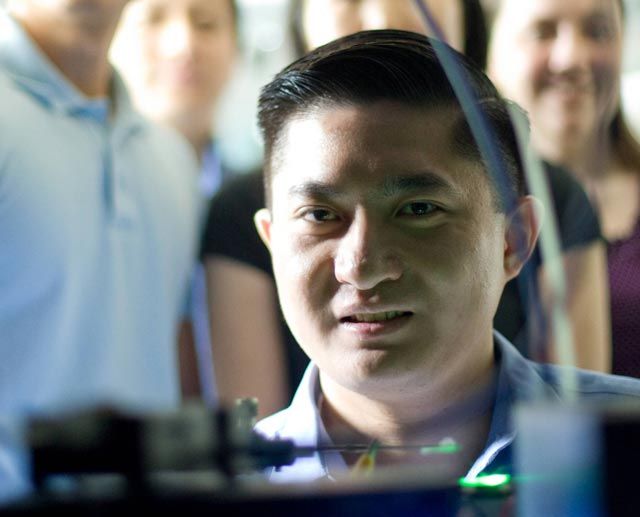Nelson Tansu, professor of electrical and computer engineering and director of Lehigh's Center for Photonics and Nanoelectronics, is interested in improving the efficiency of solid state lighting while driving down costs associated with its production. He's recently been awarded an NSF grant, entitled Physics, Materials, and Electronic Properties of Dilute-As GaNAs Semiconductors, to further this research.
Broadly speaking, Nelson's research covers both the theoretical and experimental aspects of the physics of semiconductor optoelectronics materials and devices, the physics of low-dimensional semiconductor (nanostructure), and MOCVD and device fabrications of III-Nitride and III-V-Nitride semiconductor optoelectronics devices on GaAs, InP, and GaN substrates.
The NSF project focuses on exploring the fundamental materials properties of a new class of semiconductors for solid state lighting. One of the key barriers in current light-emitting diodes (LEDs) is a significant reduction in device efficiency when operating under high current density. The new materials based on dilute-As GaNAs offer a potential solution toward low-cost solid state lighting and high-efficiency solar cells. The project offers graduate and undergraduate students multidisciplinary research training, ranging from computational materials science, materials synthesis, to materials characterization for III-Nitride semiconductors.

